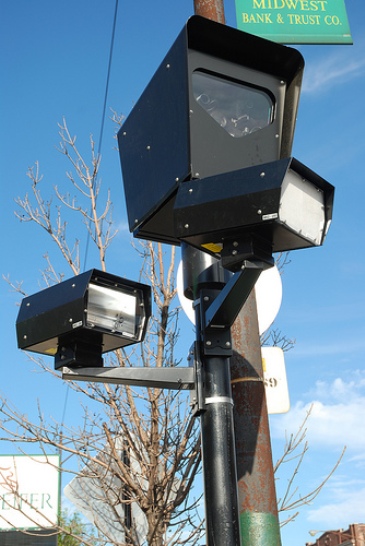Smart Grid Bill Becomes Law, Senate Approves More City Cameras
By Chris Bentley in News on Oct 27, 2011 3:50PM
Lawmakers in Springfield passed two controversial bills Wednesday: An expedited process for electricity rate increases will help modernize Illinois’ power grid under a ComEd-backed smart-grid bill; and speed cameras could survey huge swaths of Chicago to catch fast drivers.
State legislators overrode Gov. Pat Quinn’s veto and passed the smart-grid bill into law this week, while the Senate-approved camera ramp up now moves to the House.
Quinn stepped up his criticism of the smart-grid bill, implying lawmakers sold out to utilities ComEd and Ameren in exchange for campaign donations. He cited a Better Government Association report that found house members supporting the bill received six times more campaign money from energy interests between January and June this year than opponents.
For their part, the bill’s backers point out 44 states have some kind of smart-grid system in place, and that rate hikes will pay for more reliable service. ComEd officials and lawmakers who voted for the bill said the $3.2 billion buildout will save money in the long run.
Chicago, already the U.S. city with the most extensive surveillance camera network, could wind up with even more video cameras. Mayor Rahm Emanuel found backing in Springfield for a bill that would mount cameras in areas within one-eighth of a mile from city parks and schools — an area the Tribune found constitutes at least 47 percent of the city.
Support for the bill was under the flag of public safety. Chicago ranks among the top five cities in the nation for pedestrian fatalities. But critics see a cash grab by the city and Arizona-based Redflex Traffic Systems Inc., Chicago’s exclusive camera vendor since 2003.
Big Brother could watch between 6 a.m. and 10 p.m. near schools, while cameras near parks would switch on an hour before parks open until an hour after they close.
